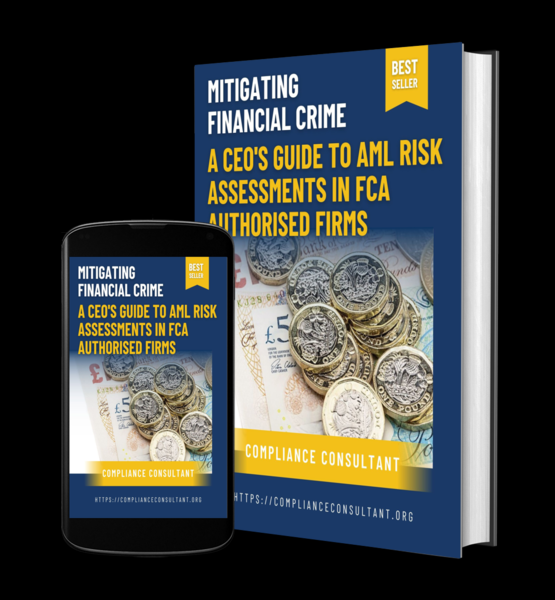





Mitigating Financial Crime: A CEO's Guide to AML Risk Assessments in FCA Authorised Firms
This comprehensive guide highlights the intertwining relationship between rigorous AML risk assessments and investor confidence. By demonstrating an unwavering commitment to combating financial crime, firms uphold their reputation and strengthen investor trust.
The book elucidates how AML risk assessments serve as a strategic tool for CEOs and Compliance & Risk Directors to instil confidence among investors, proving that AML compliance is not merely a regulatory obligation but a core part of their strategic planning.
The primary goal of AML risk assessments is to identify and evaluate the potential risks associated with money laundering and terrorist financing within an FCA authorised firm's operations. By conducting a comprehensive assessment, firms can identify vulnerabilities, gaps in controls, and areas of weakness that may be exploited by criminals. This knowledge enables firms to implement robust preventive measures and controls to mitigate the risk effectively.
Moreover, AML risk assessments provide a framework for ongoing monitoring and review of the firm's AML policies and procedures. As financial crime evolves, so must the preventive measures implemented by firms. Regular assessments help firms stay ahead of emerging threats and adapt their controls accordingly. This not only improves the firm's ability to detect and prevent financial crime but also demonstrates a commitment to compliance and risk management to regulators, investors, and clients.
Furthermore, conducting AML risk assessments can help FCA authorised firms avoid severe penalties and reputational damage. The FCA has the power to impose significant fines, revoke licenses, and publicly name and shame firms found to be non-compliant with AML regulations. By proactively conducting risk assessments, firms can identify and rectify any deficiencies before they attract regulatory scrutiny.
In conclusion, the role of financial crime prevention in FCA authorised firms cannot be overstated. Conducting AML risk assessments is not only a regulatory obligation but a strategic imperative. By identifying and mitigating money laundering and terrorist financing risks, firms can protect their reputation, maintain investor confidence, and demonstrate a commitment to compliance. Investing in robust AML risk assessments is not only a legal requirement but a sound business decision for CEOs, MDs, Compliance & Risk Directors, NEDs, and shareholders.
VAT is added at checkout
Affiliates
Like this product?
Spread the word about it and earn 50.00% of the purchase price on sales you refer.
Join our affiliate program